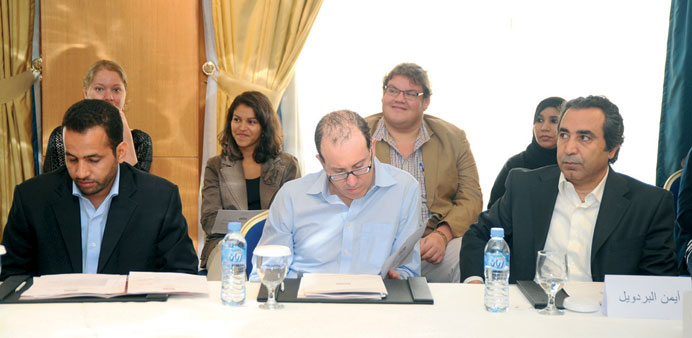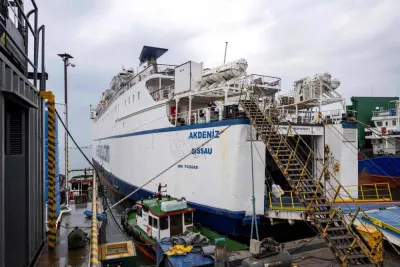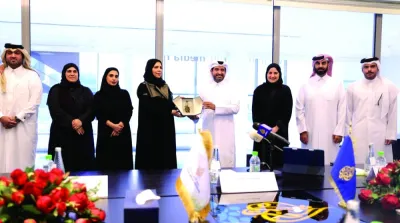By Salman Siddiqui/Staff Reporter
Qatar needs to rethink its branding as a media centre of the world and allow greater freedom of expression within the country, Committee to Protect Journalists (CPJ) executive director Joel Simon has suggested.
“While Qatar has gained an international reputation as a media centre because of Al Jazeera and its global footprint … there is a decided lack of press freedom domestically,” he told Gulf Times yesterday on the sidelines of a Doha Centre for Media Freedom workshop on press freedom violations in the Arab region.
Simon said though ‘it was true that journalists don’t get jailed or beaten here, it was also true that they don’t challenge the government in anyway. “But I think people are aware of the fact that while Al Jazeera is very active in the region and rest of the world, domestically the dynamics are very different.”
He said the top concern right now for the CPJ is Syria because of the ‘staggering’ level of violence. “I also have a personal stake there because so many colleagues are covering that conflict, who are at risk of being kidnapped; some of them have been killed and I’m terribly concerned.”
Simon hoped that perhaps the political environment would change someday in Syria and provide an opportunity to pursue justice and all the current documentation would then become useful. “Walking around (in Syria) with a camera is as dangerous as walking around with a weapon. There are snipers and forces involved who want to take out journalists,” he said.
Speaking about his concerns in Egypt, “where the situation remains volatile for journalists to operate in”, Simon said he was made aware of a new freedom of information law that was being proposed there during his visit to Cairo. “One journalist there told me that earlier they used to file lawsuits against me for insulting the president, now they file lawsuits against me for insulting religion.”
The landscape of press freedom in the Arab world was dramatically transformed by the Arab Spring, the CPJ official pointed out.
In many parts of the region, journalists are more freely able to express their views and ideas; there’s a lot more criticism and debate.
“But then there’s a lot more danger, a lot more risks because governments that were once able to keep the press in check through informal systems of control, have now broken down.”
Iran, he said, was of special concern to the CPJ given that general elections are coming up there soon. Simon was of the view that there can be no generalisations about the state of press freedom in the Arab world.
Press freedom in Saudi Arabia, according to Simon, has been pretty static. “There has been some movement because of social media that has opened up the space a little bit. But nobody should have any illusions about the impacts it’s had. Saudi Arabia remains one of the most restricted media environments in the world. One of the most censored countries.”
About assaults against women journalists in the region, he said that although the majority of the cases remain under reported, the CPJ has documented a number of such cases, especially in Egypt.
However, he pointed out that such crimes are not limited to women. “Yes, it’s mostly women, but men, particularly in Iran, we’ve seen systematic sexual abuse committed against male journalists.”

CPJ executive director Joel Simon (centre) at the workshop yesterday.


